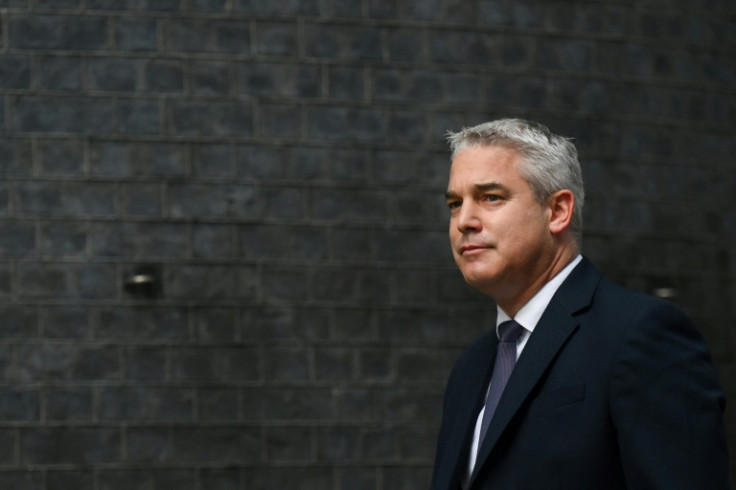Government Proposes Strike Laws As NHS Staff Continue Demands For Fair Pay And Working Conditions
The ongoing dispute between NHS staff in England and the government has taken a new turn as the health secretary, Steve Barclay, accused healthcare professionals of planning "politically timed" industrial action.

The healthcare landscape in England finds itself at the centre of a brewing storm, as the Health Secretary has accused NHS staff of planning "politically timed" industrial action.
This dispute primarily revolves around issues of pay and working conditions, with doctors and nurses advocating for better compensation and improved working environments. The Health Secretary's response has been to propose extending strike laws to ensure that hospitals maintain a minimum level of patient care during strikes.
The current discord between NHS staff and the government stems from long-standing concerns over pay and working conditions. Doctors, nurses and other healthcare professionals have voiced their frustration with salary stagnation, heavy workloads and deteriorating working conditions. These concerns were exacerbated by the challenges posed by the COVID-19 pandemic, which placed an unprecedented strain on healthcare systems worldwide.
As a result, healthcare workers across England have engaged in a series of strikes to demand fair compensation and improved working conditions. One of the most notable actions has been the 48-hour strike initiated by consultants. The British Medical Association (BMA) has been at the forefront of these labour actions, representing the interests of healthcare professionals.
Despite the ongoing disputes, the BMA has expressed a willingness to engage in constructive dialogue with government representatives to seek a resolution to the crisis.
In response to the healthcare workers' strikes, the Health Secretary, Steve Barclay, has proposed extending strike laws to ensure that hospitals maintain essential services during industrial action. This move is seen as an attempt to strike a balance between the right of healthcare workers to strike and the obligation to provide critical healthcare services.
The proposed regulations would require doctors and nurses to provide a certain level of coverage after receiving a "work notice" from their employers. The government argues that such regulations are necessary to safeguard patients' rights to access critical services like chemotherapy and dialysis during strikes.
The consultation process for these minimum service level regulations is underway, reflecting the government's commitment to a fair and transparent decision-making process. It's worth noting that similar provisions exist for other essential services such as ambulance staff, fire and rescue services and passenger rail workers under the Strikes (Minimum Service Levels) Act.
NHS Providers, representing health managers, have voiced concerns about the escalating situation within the healthcare system. The organisation has pointed out that the NHS is entering "uncharted territory" as it faces a series of strikes by doctors in England. These strikes are expected to result in the cancellation of thousands of patient appointments, placing additional strain on an already overburdened healthcare system.
Barclay has further alleged that the BMA's national committee rejected 17 exemptions proposed by local NHS bodies and the BMA representatives. This disagreement highlights the need for standardised regulations to ensure that minimum service levels are maintained during strikes. According to Barclay, this is necessary to prevent further escalation and politically motivated strikes.
The British Medical Association, representing the interests of healthcare professionals, has been engaged in a prolonged dispute with the government. Dr Vishal Sharma, the chair of the BMA consultants committee, acknowledged that strikes could be avoided if the government presented a credible offer that could be taken to the BMA members. This indicates the BMA's willingness to reach a resolution through constructive dialogue.
Dr Tom Dolphin, a member of the BMA's consultants committee, expressed concerns that the proposed minimum staffing bill would not bring an end to the dispute. He argued that such legislation might suppress the issue temporarily but would not address the underlying concerns of healthcare workers. Dr Dolphin emphasised that the government's response, including making a fair pay offer, was crucial to resolving the crisis.
The ongoing dispute between healthcare professionals and the government raises significant concerns about the potential impact on patients. The proposed strike laws and strikes themselves could result in more patients than ever being put at risk. This includes individuals who have already had their appointments and operations cancelled due to previous strikes and now face the possibility of further disruptions.
One particularly vulnerable group is cancer patients, who are expected to be disproportionately affected by the strikes. Delayed or cancelled treatments and surgeries can have life-threatening consequences for these patients.
© Copyright IBTimes 2024. All rights reserved.






